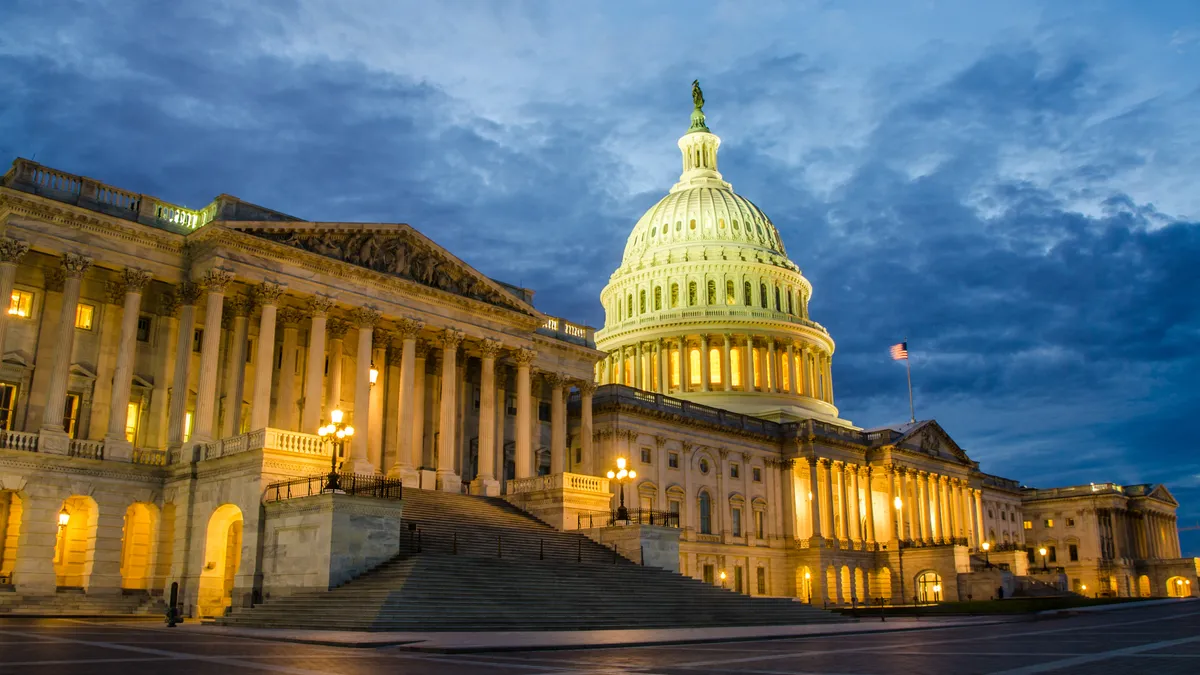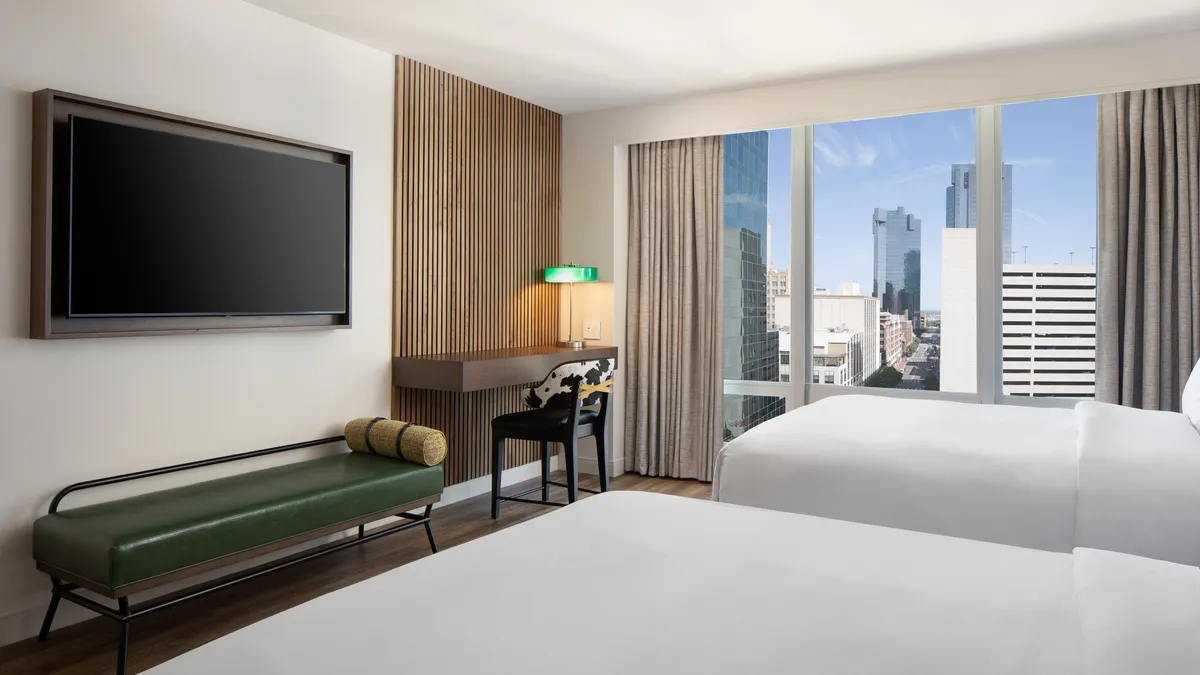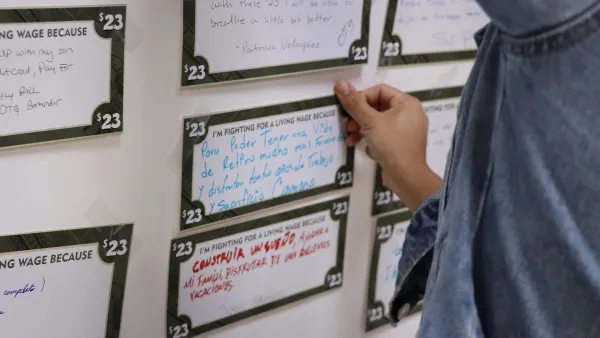Dive Brief:
- Last week, the American Hotel & Lodging Association hosted its Hotels on the Hill event in Washington, D.C., where more than 200 hoteliers representing 30-plus states lobbied for policy changes to grow the hotel workforce.
- To promote job creation and economic prosperity, the hoteliers urged Congress to expand the legal H-2B guestworker program as well as co-sponsor and pass two labor-related bills.
- The hoteliers hope legislation will combat the ongoing labor shortage. Though the hotel sector has “recovered solidly,” it still has yet to recover to pre-pandemic levels, per a recent AHLA report, and nearly 100,000 hotel jobs remain open across the country.
Dive Insight:
The report shows that America’s nearly 62,500 hotels currently support approximately 1 in 25 U.S. jobs — driving nearly $760 billion into the U.S. economy — but that’s still 5.6% fewer jobs than in 2019, and the number of direct hotel operations jobs remains 15.9% lower.
AHLA President and CEO Chip Rogers told Hotel Dive that while the U.S. hotel workforce has slowly recovered from the “crisis” level it was at until last summer, the industry is still in a “terrible spot.”
At the Hotels on the Hill event on Capitol Hill, hoteliers hosted more than 100 meetings with House and Senate offices and leadership.
The hoteliers urged policymakers to expand the H-2B guest worker program, which helps independent hotels and resorts in remote vacation destinations fill seasonal roles. The program is currently capped at an “inadequate” 66,000 visas each year, AHLA said in a release.
Hoteliers asked Congress to include an H-2B exemption for returning workers in the fiscal year 2024 Department of Homeland Security appropriations bill, exempting returning workers from the annual cap. These employees would provide critical staffing relief for seasonal small business hotels, according to AHLA.
Laura Lee Blake, president and CEO of Asian American Hotel Owners Association, said in a statement that the cap on H2-B visas remains one of the biggest hurdles facing the hospitality industry. “With many businesses struggling to find qualified workers, there has been a growing need for skilled foreign workers to fill the gaps,” she added.
In October, the Department of Homeland Security, in consultation with the Department of Labor, issued a regulation that made an additional 64,716 H-2B temporary nonagricultural worker visas available to employers for the 2023 fiscal year, on top of the normal 66,000 H-2B visa cap.
At the time of the announcement, Rogers wrote in a LinkedIn post that the additional visas would not be enough to meet hoteliers’ labor needs, and the organization would continue urging Congress and the Biden administration to make more visas available.
However, Rogers said even if the exemption is added, it still won’t be enough to meet hoteliers labor needs, especially since many hotels are seeking permanent, not seasonal, workers.
The bipartisan Asylum Seeker Work Authorization Act, introduced by Sen. Susan Collins (R-ME), has the potential to add far more jobs than the H-2B extension, according to Rogers. If passed, the legislation would allow asylum seekers to work as soon as 30 days after applying for asylum, compared to the six months they currently must wait, Rogers said. The Biden administration set a refugee admissions target at 125,000 for 2023.
The hoteliers also pushed for the passing of the proposed Save Local Business Act, introduced by Rep. James Comer (R-Ky). The bill would clarify the definition of an employer as an entity with direct control over specific working conditions, according to the AHLA release.










